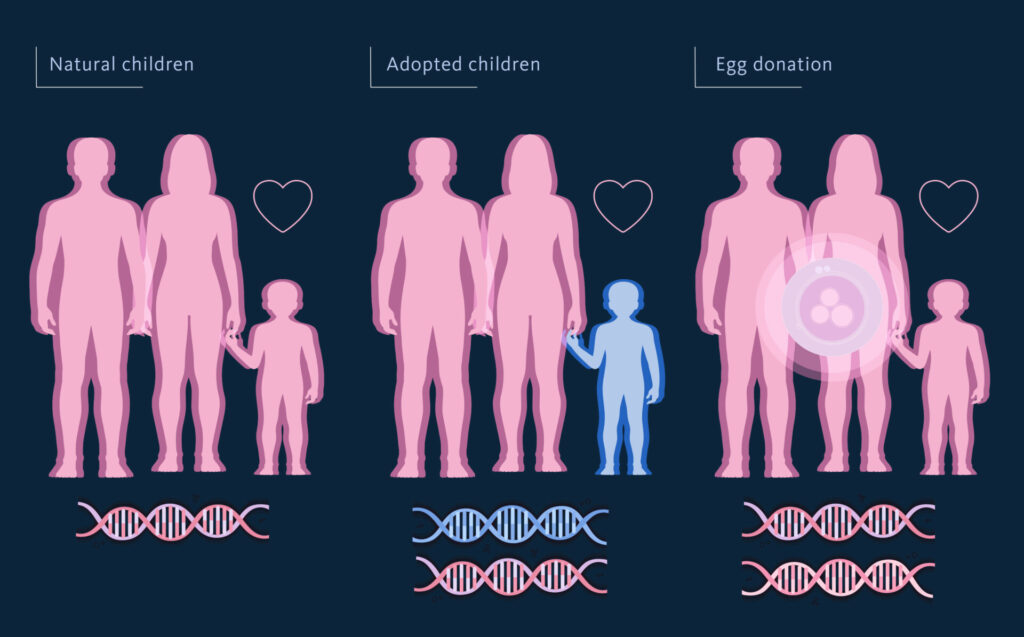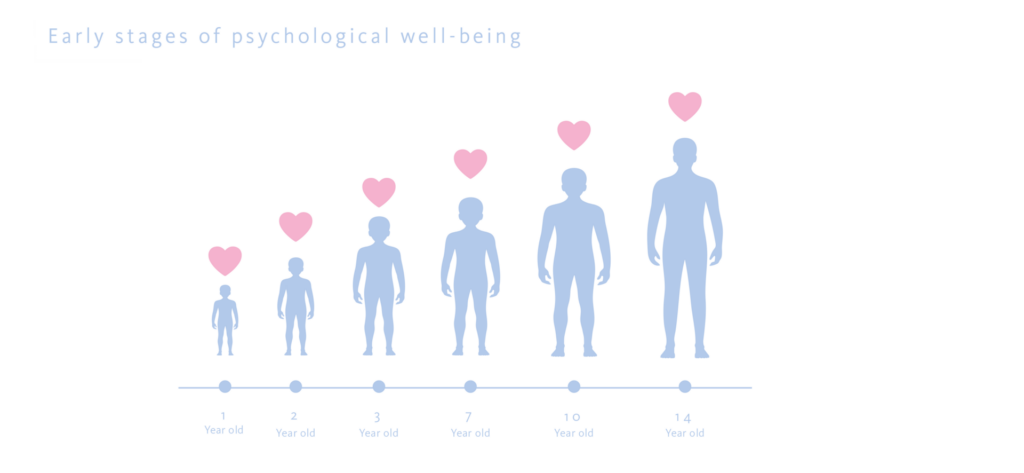In the field of research on the relationship between mother and child when the child comes from donor gametes and the parents, or one of them, do not share genetic carrying capacity, the study “Longitudinal study of families formed through donor gamete-assisted reproduction: Mother-child relationships and child adjustment from infancy to adulthood“1 by Susan Golombok, Catherine Jones, Poppy Hall, Sarah Foley, Susan Imrie and Vasanti Jadva, has emerged as a fundamental piece of work. Published in 2023, this work has attracted academic attention because of the comparison between the mother-child relationship in the case of an adopted child, a biological child and a gametes donation child. In this brief exploration, we will dive into the foundations of this study, examining its key findings and adding an additional layer of critical reflection.

Questioning Assisted Reproductive Therapies: A Critical Examination
Assisted reproductive therapies, carried out through gamete donation and surrogacy or also collectively called “third party reproductive therapies”, have been questioned about the negative potential they may have on the psychological well-being of both children and families involved.
A theory behind these assumptions is that the lack of genetic connection of one parent may interfere with the development of a positive relationship between the two parents, because biologically parents care for and invest in their children in order to pass their genes on to future generations, based on the biological concept of genetic transmission as an instrument of the overall evolutionary process.
It has been suggested, in different research, that children in adoptive families suffer from adjustment problems. However, these problems have not been observed in children conceived by “reproductive treatment with the participation of third parties”, since, by contrast with adopted children, the first ones are not removed from other families, they are born in the family that is going to raise them and their parents consider them as their own due to the genetic connection with one of them, in addition to the fact that the gestation and birth process has been within the family nucleus.
Insights from a 20-Year Longitudinal Study
The present work describes a 20-year longitudinal study of families formed by “reproductive therapies with third party participation”. In the earlier phases, the psychological well-being and inter-family relationships of the subjects were evaluated at the ages of 1, 2, 3, 7, 10 and 14 years. Four types of heterosexual parent families were compared: children with egg donation, children with sperm donation, children after uterine surrogacy and the control group of families with children without assisted reproductive therapies.

Highlighting Positive Outcomes: Parental Satisfaction and Commitment
One of the highlights of the study was the finding of greater positive outcomes of adjustment and well-being in families formed with “reproductive therapies with third party involvement” than in families without reproductive therapies, which is attributed to a greater satisfaction and commitment of the parents to their desired children in a very intense way, such that they made it necessary to turn to assisted reproduction centres to achieve their goal.
Transition to Adulthood: Evaluating Parent-Child Relationships
During the study, we first compared families that lacked partial genetic linkage with those that were biologically related, then compared surrogacy families with gamete donation families to assess the impact of no gestational linkage versus no genetic linkage, and finally compared egg donation families with sperm donation families to determine whether children who lacked maternal genetic linkage differed from children who lacked paternal genetic linkage.
The aim of the current phase of the study was to assess the quality of the parent-child relationship and the psychological adjustment of the children when they reached the age of 20.
The adjustment of the progeny did not differ between the families of “reproductive treatments with third party involvement” and those who did not use assisted reproductive treatments.
Impact of Information Disclosure on Family Dynamics
An important issue is when parents disclosed information about conception to their children, which had been established in early stages of the study, and in later stages, it was confirmed that early disclosure, which means before the age of 7 years, is beneficial in all psychological aspects of the child and the family, finding better levels of well-being in mothers who had disclosed the way of conception around the age of 7 years. In contrast, families who did not disclose the way of conception before the age of 7 years were found to have lower scores on positive parenting, quality family relationships and family communication.
Interestingly, the family group with the lowest rate of disclosure of the route of conception was the sperm donation families, and was the only group where a significant difference in poor family communication was found compared to the oocyte donation families (p=0.038).
Stability and Influence of Parenting: No Significant Differences
Finally, no differences were found in the stability and positive or negative influence of parenting between families with and without assisted reproductive treatments, which indicates that the quality of the family relationship from early childhood to adulthood is not related to the absence of genetic or gestational connection between parents and their children.
Therefore, despite concerns that have been expressed about “third party reproductive treatments” potentially having a negative effect on family function, the findings of this study suggest that the absence of biological connection between children and their fathers and mothers does not interfere with the development of positive mother-child relationships or the psychological well-being of children.
References
- Susan Golombok, Catherine Jones, Poppy Hall, Sarah Foley, Susan Imrie and Vasanti Jadva (2023) “A Longitudinal Study of Families Formed Through Third-Party Assisted Reproduction: Mother-Child Relationships and Child Adjustment From Infancy to Adulthood” American Psychological Assotiaton.
